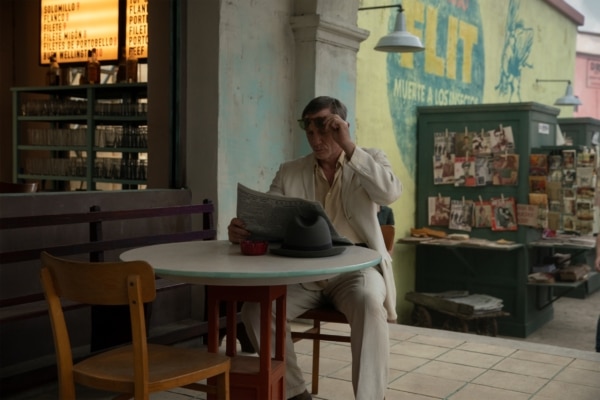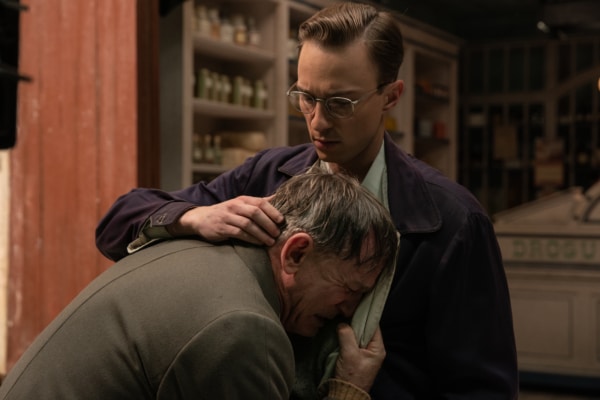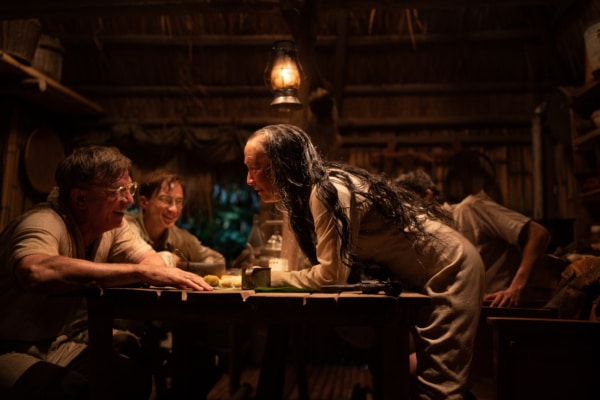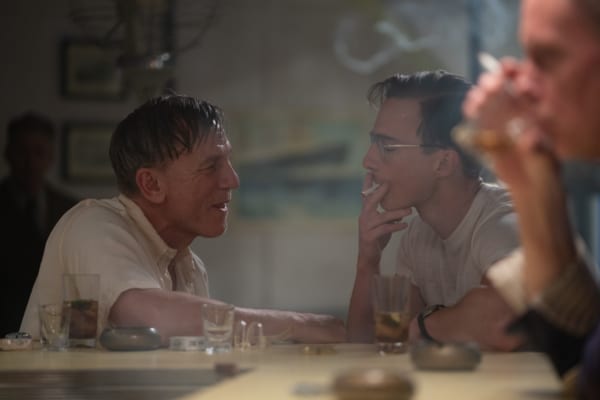Luca Guadagnino is known as an auteur filmmaker, and his past work is evidence of that. The Italian director tends to bend conventional storytelling to showcase thought-provoking scenes, chalked full of deep-seated emotions and sometimes downright beautiful. Many of his films cover topics such as faith, love, and heartbreak. Yet what they all have in common is being characterized by emotional complexity, eroticism, and reality breaking through stunning or lavish visuals. His latest film, Queer, continues Guadagnino using his tools to tell a compelling story about the thirst for love only to face sorrow.
Although the acting and scriptwriting are stellar throughout the movie, Guadagnino makes numerous questionable directing choices that give the movie a misstep in the 3rd Act.
Queer, directed by Guadagnino and written by Justin Kuritzkes, is based on the 1985 novella by William S. Burroughs. William Lee, played by Daniel Craig, an American ex-pat wandering the streets of 1950s Mexico City. Lee’s life is filled with drinking, drugs, and meaningless one-night stands when he meets a young student named Eugene Allerton, played by Drew Starkey. Lee’s need for a meaningful connection draws him to Allerton, and the two become entangled with one another, leading them to a path of self-discovery.

The one thing you might hear about this movie is the stellar performance of the cast—particularly Craig. The actor has always shown range in his previous film, but Queer puts Craig on a whole new level. Lee is a tormented character running from his past and trying to find meaning. Craig handles the role with astounding skills. The movie starts with Lee analyzing a person sitting across from him. It’s presented as a testimonial that is impactful later in the film. The scene indicates Craig is engulfing the role and seemingly being one with the character.
The moment in the film also sets up another momentums scene for Craig when Lee realizes that all his efforts were for nothing. It’s a heartbreaking point in the movie that resonated with me so much. Consequently, this leads to Kuritzkes phenomenal writing.
Kuritzkes’s filmography only contains one other feature — 2024’s Challengers—but the young writer continues to show that he’ll have a long career in film. The novella is a complicated tale that weaves in and out of specific points in Lee’s life, his emotional arcs, and dreamlike scenarios. The writer was able to interpret that well from book to script and help give the actors the suitable material to digest. It allowed Craig, Starkey, and even Jason Schwartzman—who played Lee’s friend Joe Guirdy—to come off genuine during their heavy dialogue scenes.
Kuritzkes knew how to work in conjunction with Guadagnino’s style of directing, which assisted in the heavy dream settings throughout Queer. The 3rd Act’s reality-breaking scenes get more intense, but Guadagnino captures the essence of Kuritzkes’s writing. To illustrate this, Lee and Allerton’s journey comes ahead that will either make or break them. It’s a significant plot point that uses little to no dialogue but speaks volumes for the movie. It was almost haunting but poignant. Although Guadagnino does excellent work with most of Queer, there still are some serious issues.
One example is the pacing of the movie. The film is steady through Acts 1 and 2 but starts unjustifiably in different directions. Lee and Allerton take a trip to South America, where the former hopes for the best. However, it takes this weird turn when the two’s toxic relationship appears. There’s no lead-up to it, and it is never explored again. The next part is when the movie gives me more of a glimpse of Allerton. The scene opens the door to what’s going on in Allerton’s head but then is dropped just as quickly. It’s almost baffling.
Lastly, the soundtrack is out of place, to say the least. The music is composed by Oscar-winners Trent Reznor and Atticus Ross, and for the most part, their styles work. However, several needle drops took me out of the movie. The story takes place in the 1950s, but hearing Nirvana’s ‘Come As You Are,’ Prince’s ‘Musicology’ or Sinéad O’Connor’s ‘All Apologies’ is just plain weird. I will let New Order’s ‘ Leave Me Alone’ slide because that is such a damn good song.
I’m a sucker for a good Guadagnino film and will always race to the theater to see his work. The most vital points of Queer are the acting and writing, and I wouldn’t be surprised if Craig’s performance garners him awards. Listening to some of Guadagnino’s musical choices is perplexing, and the directions in Act 3rd are confounding. Yet, the film is still worth seeing if you’re a fan of the director or in the mood for a tragic love story.

